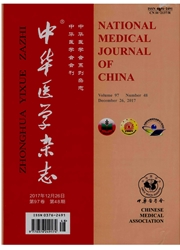

 中文摘要:
中文摘要:
目的 检测结核分枝杆菌临床分离株对氨基水杨酸(PAS)耐药和胸苷酸合成酶基因(thyA)突变的关系,以探讨结核分枝杆菌PAS耐药的分子机制。方法95株结核分枝杆菌临床分离株中的51株PAS敏感株和44株PAS耐药株的PAS耐药相关基因thyA基因进行PCR扩增,扩增产物纯化后进行序列测定,与结核分枝杆菌标准株H37Rv的野生型岫,A基因序列进行对比,判断这些临床分离株的thyA基因有无突变。结果51株PAS敏感株thyA基因未检出突变。44株PAS耐药株中有16个临床分离株的thyA基因检测到突变,突变检出率为36.4%(16/44)。突变类型包括置换、颠换、插入、缺失,均为单碱基改变或单碱基缺失,其中2株为thyA基因2个位点联合突变。结论结核分枝杆菌tyA基因突变是其产生PAS耐药的重要原因之一。结核分枝杆菌胸苷酸合成酶是PAS作用的重要靶位。
 英文摘要:
英文摘要:
Objective The mechanisms of resistance to para-amninosalicylic acid (PAS) are undefined. In this study, we explored the mechanisms of M. tuberculosis PAS resistance in clinical isolates. Methods The whole sequence of thymidylate synthase (thyA) gene encoding thyA genes was sequenced in 51 para-aminosalicylic (PAS)-sensitive and 44 resistant M. tuberculosis clinical isolates. Results Sixteen of 44 resistant M. tuberculosis clinical isolates had mutations in the thyA genes, a mutation rate of 36.4% (16/44). No mutations were detected in the sensitive clinical isolates. The mutation types included substitutions, conversions and deletions.Conclusions Mutations in the thyA gene is associated with PAS resistance in M. tuberculosis clinical isolates, and mutations in thyA gene probably represent a major mechanism of developing resistance to the drug. Thymidylate synthase is likely to be the target of PAS action.
 同期刊论文项目
同期刊论文项目
 同项目期刊论文
同项目期刊论文
 期刊信息
期刊信息
